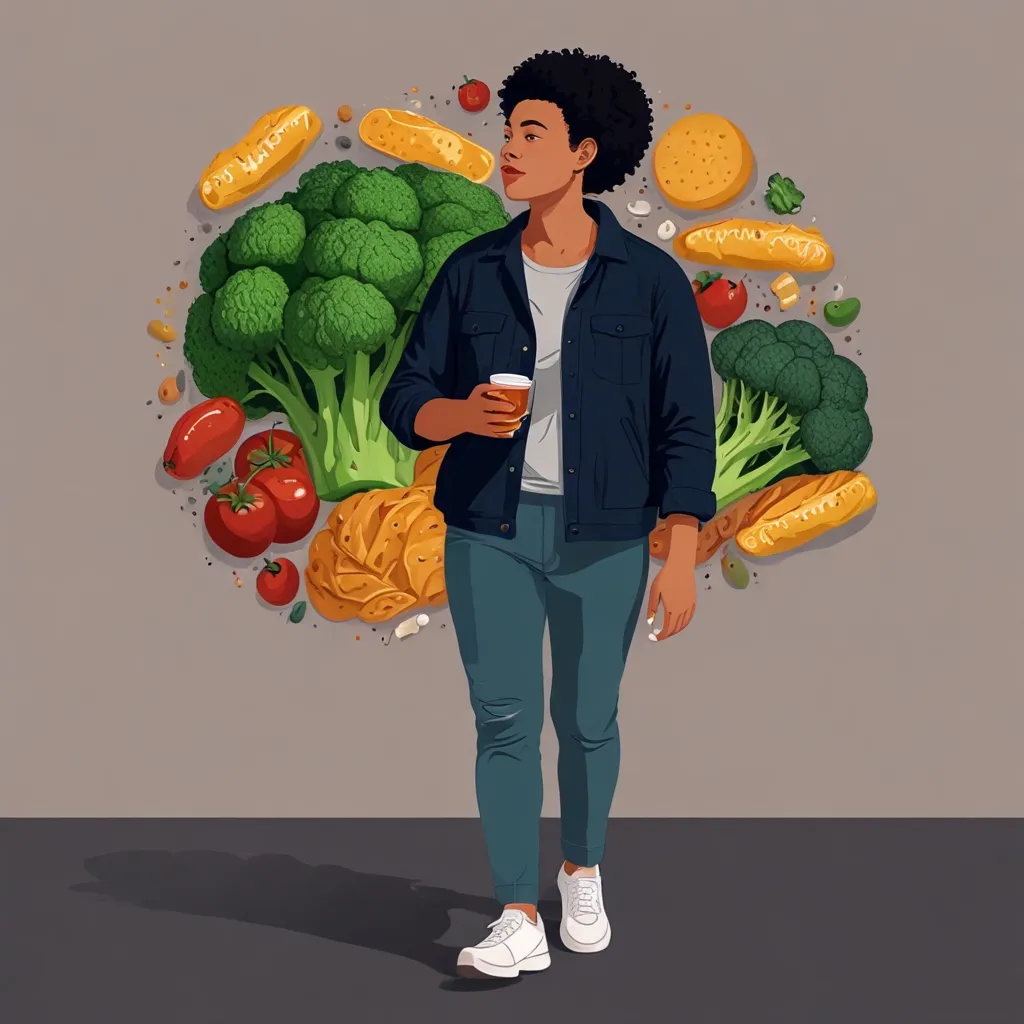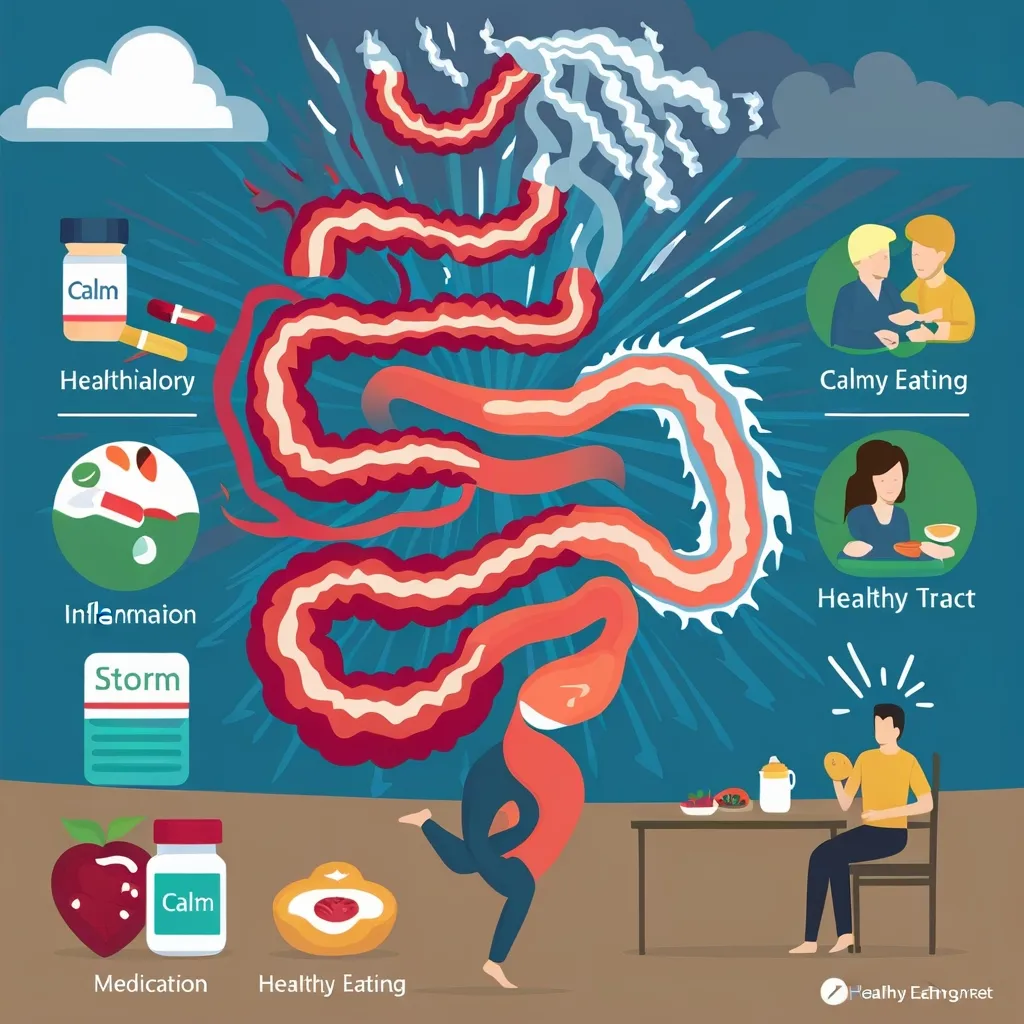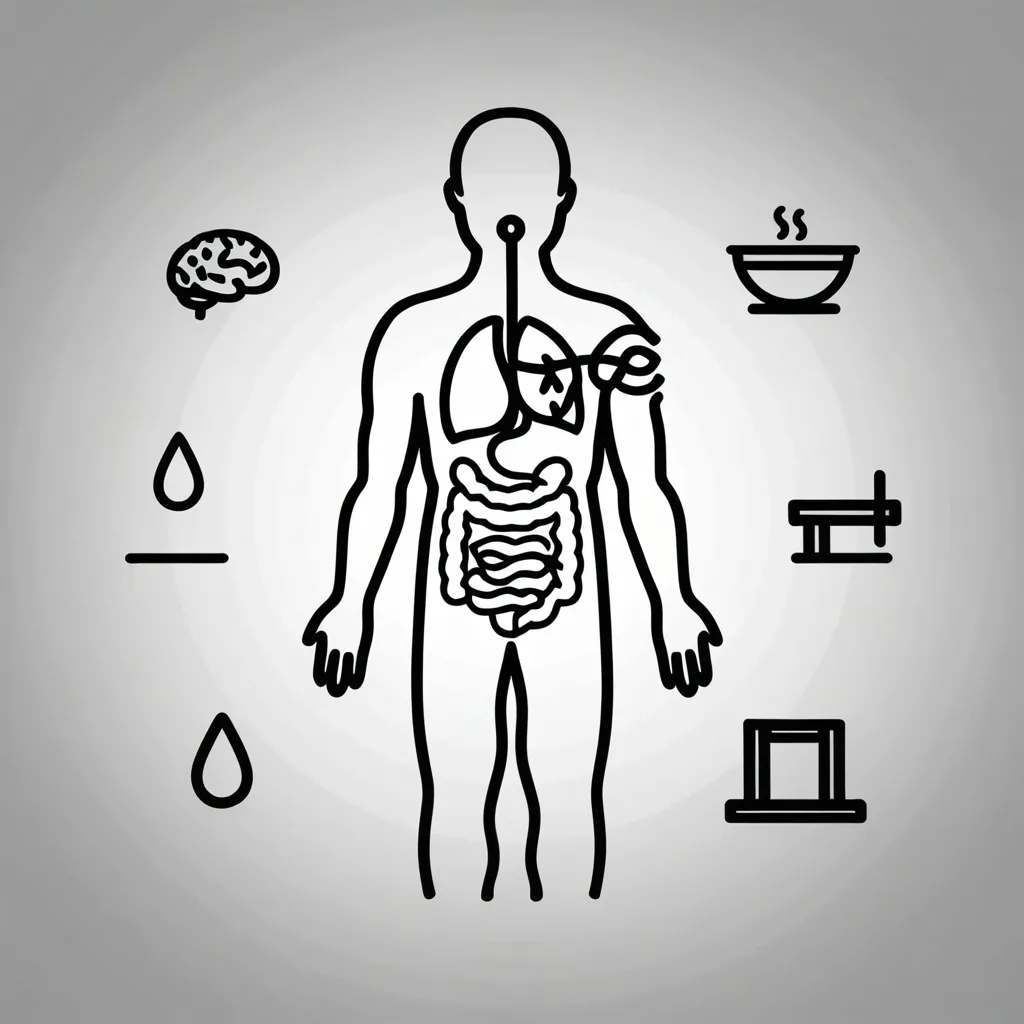Bloating can really mess up your day, making you feel all tight and uncomfortable around your belly. It’s like having a balloon party in your digestive system, thanks to a build-up of gas. This can happen for a bunch of reasons—what you eat, how you move, and sometimes even deeper health issues. But don’t freak out; there are plenty of ways to deflate that belly balloon and keep things comfy.
First off, let’s talk about moving. A little exercise goes a long way. When you’re stressed, your gut can feel it too. Even a short walk, like a 10-minute stroll after a meal, can make a huge difference. Studies show that taking around 1,000 steps after eating can beat bloating better than some medications. So, next time you’re feeling puffy, lace up those sneakers and take a spin around the block.
Eating slowly is another game changer. When you scarf down your food like it’s a race, you end up swallowing a lot of air, which adds to the bloating. By slowing down and not chatting away while you chow down, you can cut down on the air intake. If you think you’re eating too much at once, try spreading your meals out more. Smaller, more frequent meals can help your digestive system work its magic more smoothly.
Air swallowing is a sneaky bloating culprit. Stuff like chewing gum, sipping carbonated drinks, and using straws can trap extra air in your gut. By dialing back on these habits, you can really reduce that uncomfortable air build-up.
Then there are the foods that are basically bloating bullies. Veggies like broccoli, cauliflower, and Brussels sprouts can be tough on your stomach because they contain sugars that are hard to digest. Same goes for beans and whole grains. If these foods make you bloated, it might be a good idea to dial down on these or skip them altogether.
Everyone needs fiber for a healthy gut, but too much too quickly can blow up your belly. The experts suggest aiming for about 14 grams of fiber for every 1,000 calories you eat. Pair your fiber with carbs and steer clear of soluble fiber like beans, nuts, and seeds if they bother you. Ease into higher fiber intake and drink plenty of water to help your gut adjust without all that discomfort.
Smoking is another rough habit for your stomach. Not only is it bad for your overall health, but it can also mess with your gut, leading to bloating. Kicking the habit might be tough at first, but your body (and your belly) will thank you in the long run.
A food diary can be super helpful in figuring out what foods are causing your bloating. By jotting down what you’re eating and when you feel bloated, you can spot the troublemakers and make changes. Common culprits include fizzy drinks, dairy, sugar-free gum and candies, and fruits high in fructose like apples and pears.
A low-FODMAP diet might be worth a try if specific foods are causing you grief. FODMAPs are types of carbs that some people can’t digest well. This diet cuts out foods like wheat, onions, garlic, legumes, and certain fruits and veggies. It can be pretty restrictive, so it’s a good idea to get some guidance from a nutritionist if you’re thinking about giving it a go.
Mindful eating can also keep the bloating at bay. Eating slowly, chewing thoroughly, and avoiding distractions can make a big difference. Maybe try using chopsticks or your non-dominant hand to slow yourself down. Also, steer clear of screens and make your meal last at least 20 minutes.
Staying active is great for your gut and general wellbeing. Exercise can ease symptoms of IBS and lower stress, which can make bloating worse. If you can’t hit the gym, even a short walk after meals can help.
There are some home remedies that can help with bloating, too. Cooking with anise, a herb known to help reduce bloating in people with IBS and dyspepsia, can be beneficial. Over-the-counter meds like simethicone can help break up gas bubbles. And products like Beano can help you digest difficult carbs found in beans and veggies.
Hydration is key, but try not to drink a lot while you’re eating. Wait a bit after your meal before you hydrate. Following a healthy diet, maintaining a good weight, and regular exercise can all help keep bloating in check.
For those dealing with IBS, a low-FODMAP diet and supplements like probiotics or peppermint oil can be helpful. Probiotics balance your gut’s bacteria, while peppermint oil can ease your digestive tract.
Sometimes it’s tricky to tell if you’re bloated or if you’ve gained weight. Bloating usually goes away as your body processes food, while weight gain sticks around. If your bloating goes down and you notice a lower scale number, it’s probably just bloating. However, bloating can often come with recent weight gain, especially if you’re struggling with obesity.
While bloating itself isn’t directly linked to gaining weight, it can sometimes signal other health problems. If you’re dealing with chronic bloating, it’s a good idea to see a healthcare professional to rule out any serious issues. They can help you figure out what’s going on and suggest the right treatments.
In the end, bloating is a common but manageable issue. Some simple lifestyle tweaks and dietary changes can make all the difference. Stay active, eat mindfully, avoid specific foods that bloat you, and keep hydrated. And if bloating becomes a persistent problem, don’t hesitate to consult with a healthcare pro for personalized advice.






